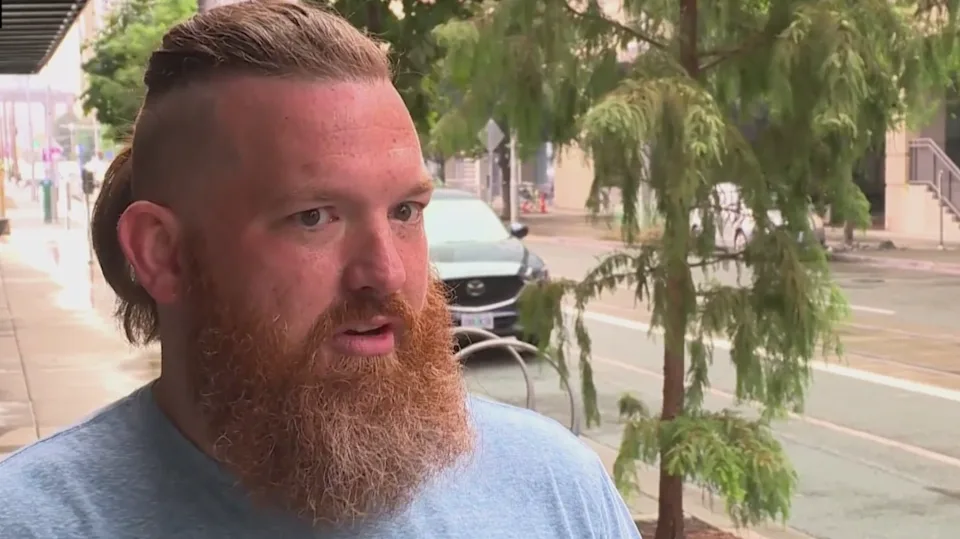PORTLAND, Ore. (KOIN) — As federal officials continue to characterize Portland as “war ravaged,” many residents living closest to the nightly protests outside the Immigration and Customs Enforcement (ICE) facility in South Portland say the description does not reflect their reality.
Life Near the ICE Facility
For Mackenzie Granville, who lives near the ICE building, the demonstrations are part of the neighborhood’s rhythm. She said protesters have been respectful, even warning neighbors about tear gas exposure when walking pets.
“I’m walking outside at night. There’s no issues or anything. It is not crazy at all,” Granville said. “Honestly, I just can’t really walk my dog in that direction because of the tear gas. So all the protesters are really great about warning people, ‘Hey, if you walk your dog over here, please wash them off when they get back.’”
Also Read
Her neighbor, Richard Litz, echoed the sentiment.
Veterans’ Perspective
For Litz, a veteran who served three tours in Iraq, the federal government’s language is particularly troubling.
“The smell of the tear gas, that is triggering because I am a veteran,” he explained. “So smelling the tear gas and the smoke and stuff, it makes me have flashbacks of Iraq.”
While Litz acknowledges the difficulties created by the protests and law enforcement responses, he rejects the idea that Portland resembles a battlefield.
“I have been deployed to Iraq three times,” he said. “But Portland, we’re not a war zone.”
Federal Response and Tensions
The federal government’s involvement has brought heightened tension. Over the weekend, bike patrol units with the Portland Police Bureau (PPB) wove through crowds. ICE agents in full riot gear emerged from the facility to move protesters aside so cars could enter the driveway. Both agencies made arrests.
At the same time, National Guard troops have been deployed to Portland, intensifying concerns among residents about the federal presence in local matters.
Contrasting Realities
President Donald Trump described Portland as “war ravaged,” a phrase that quickly drew pushback from community members. Granville said the reality on the ground is far more subdued than the national narrative suggests.
“The last couple nights there have been, you know, helicopters circling pretty constantly,” she admitted. “But beyond that, it’s been pretty calm. Nothing too crazy going on. So that whole ‘war ravaged’ is a little weird to me.”
Fear Among Businesses
KOIN 6 News contacted several businesses in the South Portland area, but none agreed to go on camera. Owners expressed fear of retaliation, not from federal officials, but from protesters. The reluctance highlights the complicated dynamics for those living and working near the ICE facility.
Local Voices Push Back
For residents like Granville and Litz, life continues with adjustments — avoiding certain blocks, dealing with tear gas, or coping with emotional triggers. But they insist the city is not in ruins.
Rather than the “war zone” label, they describe a community caught between political battles, protests, and heavy-handed federal intervention. To them, Portland remains a city under pressure, not destruction.












